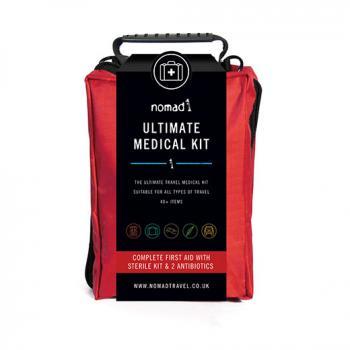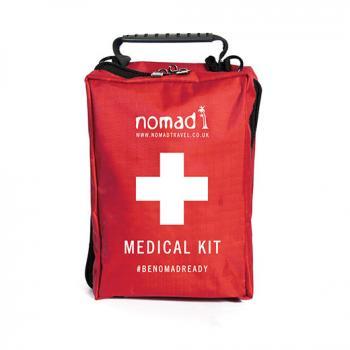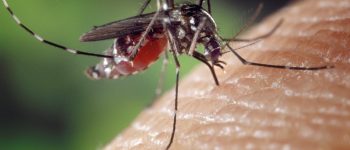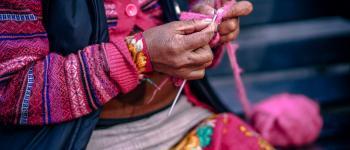Vaccinations for Vietnam
For most travellers the recommended vaccinations vaccinations for Vietnam include: Diphtheria, Hepatitis A, Tetanus & Typhoid
For people trekking in the countryside, staying for longer periods or for those at higher risk, recommended vaccinations for Vietnam might include: Cholera, Hepatitis B, Japanese Encephalitis, Measles Mumps & Rubella, Rabies, & Yellow Fever
There is no risk of Yellow Fever in Vietnam, but there are Yellow Fever certificate entry requirements. See below for advice.
Vaccines Recommended to All Travellers to Vietnam
All travellers to all areas of this country are advised to have these vaccinations along with staying up to date with the routine vaccination schedule for the UK. Book a consultation for a full travel health risk assessment.
Diphtheria
Diphtheria is a bacterial disease spread through close contact with infected persons. Vaccination against Diphtheria may be recommended
- 1 dose of Diphtheria is required
- Given any time before travel
Hepatitis A
Hepatitis A is a virus spread through food, water or contact with an infected person that affects the liver. Vaccination against Hepatitis A is recommended, as well as adequate food & water hygiene.
- 1 dose of Hepatitis A is required
- Given a minimum of 2 weeks before travel
Tetanus
Typhoid
Typhoid is spread through contaminated food and water. Typhoid is common in areas with poor standards in food hygiene & preparation, and where suitable treatment of sewage is lacking. There are several types of Typhoid vaccination available.
- 1-3 doses of Typhoid are required
- Doses administered once or over 4 days
- Given 7-14 days before travel
Vaccines Recommended to Some Travellers to Vietnam
These vaccinations may be advised depending on the specific areas you are travelling to, your medical history and your itinary. Book a consultation for expert guidance on whether these vaccines are recommended for you.
Cholera
Hepatitis B
Hepatitis B is viral disease that is spread through blood and bodily fluids. Vaccination against Hepatitis B may be recommended
- 3-4 doses of Hepatitis B are required
- 21 days apart with a further dose 1 year later for full protection
- Given any time before travel
Japanese Encephalitis
Japanese Encephalitis is a disease spread through the bite of an infected mosquito, which can cause inflammation of the brain. Japanese Encephalitis is most common in parts of Asia. Vaccination against Japanese Encephalitis may be recommended
- 2 doses of Japanese Encephalitis are required
- Doses administered 28 days apart
- Given any time before travel
Measles, Mumps & Rubella
Measles, Mumps & Rubella (MMR) are viral illnesses spread by the respiratory route; coughing, sneezing etc. They are present globally in all countries of the world and are therefore MMR is a risk to all travellers.
- 2 doses of MMR are required
- Doses administered 1 month apart
- Given any time before travel
Rabies
Rabies is endemic throughout most of the world. The Rabies virus is carried in the saliva of infected mammals. Rabies affects the nervous system and, once symptoms develop, death is inevitable – even with good medical care.
- 3 doses of Rabies are required
- Doses administered 21-28 days apart
- Given any time before travel
Yellow Fever
Yellow Fever is endemic in parts of Sub-Saharan Africa and South America. Yellow Fever is spread by infected mosquitoes normally most active from sunrise to sunset. Many countries, where the disease is not endemic, require a valid certificate of vaccination against Yellow Fever before you can enter as a traveller.
- 1 dose of Yellow Fever is required
- Given any time before travel
- Yellow Fever certificate of vaccination is valid for life
Malaria Risk in Vietnam
Malaria is present in Vietnam.
There is no vaccination against Malaria, you may need to take Antimalarial tablets there are some high risk areas. We recommend you have a consultation with an expert Nomad nurse to talk through your malaria tablet recommendations.
For a detailed map of the Malaria risk in this country, click here (Source: fitfortravel)
Yellow Fever in Vietnam
There is no risk of Yellow Fever in Vietnam.
Yellow fever vaccination certificate is required for travellers over 1 year of age arriving from countries with risk of yellow fever transmission.
For details on Yellow Fever risk areas, click here (Source: fitfortravel)
Other Health Risks
Chikungunya in Vietnam
There is a risk of Chikungunya virus in this country. Spread by mosquitos, Chikungunya virus is widespread across Africa, South-East Asia, the Indian sub-continent and the Philippines. Occasionally, the virus can be found in other countries where the mosquito that spreads Chikungunya can also be found. There is no vaccination against Chikungunya, it is important to protect yourself with bite avoidance products like DEET. For more information – click here.
High Altitude in Vietnam
There are some high altitude areas. Travellers should take care to avoid Acute Mountain Sickness (AMS) by taking time to acclimatise properly. AMS can affect anyone, regardless of age, gender, level of fitness or training. At high altitude, extra precautions should be taken against the harsh conditions, which can cause damaging ultraviolet and cold exposure. All Nomad Travel Health Nurses are trained to advise on AMS, and it may be appropriate for you to take certain medications that may help with acclimatisation. Book an appointment to discuss health issues related to altitude, based on your specific itinerary. For more information – click here.
Dengue Fever in Vietnam
There is a risk of Dengue Fever. It is spread by a species of mosquito called Aedes aegypti, otherwise known as the ‘tiger mosquito’ which mainly bites during the day. The illness is widespread throughout the tropics and subtropics, affecting over 100 countries with approximately 50 million cases globally a year. Currently most infections occur in SE Asia, South and Central America, Mexico, Africa, Indian sub-continent, Hawaii and the Pacific. There is currently no vaccination against Dengue Fever, it is therefore important to protect yourself during the day with bite avoidance products like DEET. For more information – click here.
Leptospirosis in Vietnam
There is a risk of Leptospirosis. Leptospirosis infection is widespread throughout the world, but cases are most common in tropical climates, areas where the standard of hygiene is poor and in areas subject to flooding. The infection occurs when cuts or abrasions of the skin and mucous membrane (eyes, mouth) come into contact with flood water, moist soil, vegetation (particularly bamboo) and fresh water infected by animal urine and other secretions. Prevention is dependent on covering cuts, scratches and open skin lesions with waterproof plasters, avoiding swallowing or drinking potentially infected water and, where risk is high, protective clothing should be worn.












